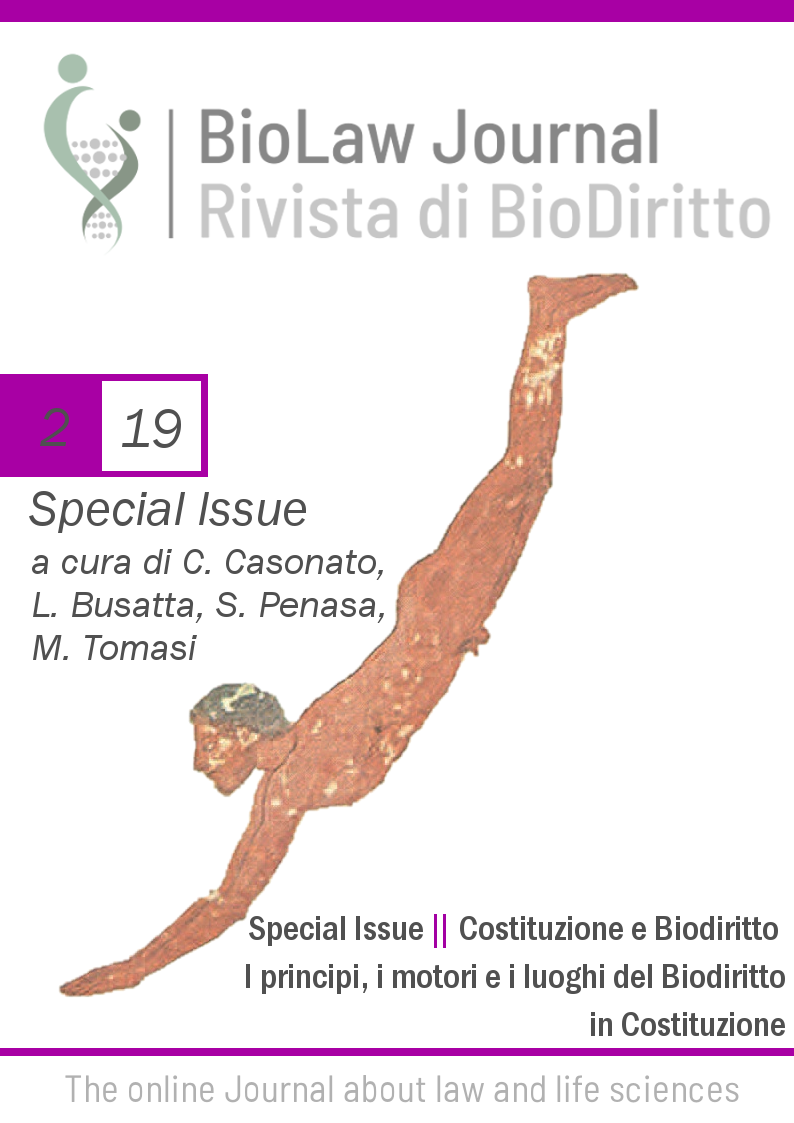Obiettare è boicottare? L’ambiguità dell’obiezione di coscienza e i fini dell’ordinamento
DOI:
https://doi.org/10.15168/2284-4503-462Parole chiave:
Conscientious objection, freedom of conscience, bioethics, reasonable adjustment, constitutional dutiesAbstract
Based on the assumption that the right to conscientious objection can be exercised (lawfully) only in the cases in which the law recognises it, this work tries to analyse the reasons why the legislator has so far acknowledged, under precise circumstances, this right - with a specific reference to bioethics -, by highlighting the legal goods that are guaranteed by these provisions. Under certain circumstances they are understood as legal goods concerning the exclusive sphere of the objector, meanwhile in other cases the objector is protected in its own right not to provoke effects either on other subjects (namely by safeguarding their life on the basis of the commandment “Thou shalt not kill”) or on significant constitutional interests. As a consequence, we wonder which purposes the objector seeks (that to prevent the law from producing the desired results or that to unburden himself?). The final remarks consider the objection of conscience as a “reasonable adjustment” between the reasons of the legal system and the reasons of the objector.





